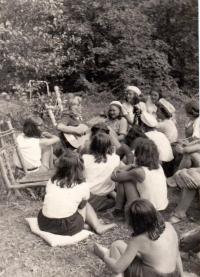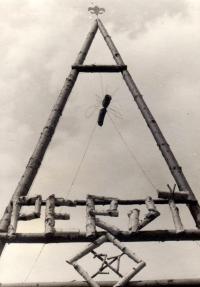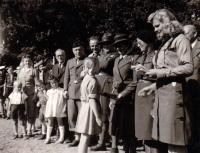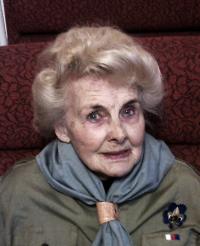I have buried the names of the Pilsen Scouts, who were taking people across the border, in my memory so that I would not harm anybody
Věra “Vejda” Benešová was born as Věra Nová on Mach 22, 1926 in Pilsen into a family of teachers. In 1939 she joined a Scout troop for a short time and she greatly enjoyed the activities, but they soon came to an end due to the Nazi ban on Scouting. After World War II she began with Scouting again, and she became the leader of the 27th Girl Scout troop Peruť in Pilsen. She organized several Scout camps and she served as the leader of the Scout group and district. Junák (Scout) organization became banned after 1948. In the 1950s, Věra was briefly involved in guiding people illegally over the state border. The family later moved to České Budějovice and Věra found a job in a kindergarten. She married and they had three sons. Later she became the principal of the kindergarten in the Tesla company, and she was also involved in preschool education of children, in educating new teachers and in working for the regional teachers’ institute. Due to her Scouting past, she was summoned for interrogation by the StB, but the “only” consequence was the loss of several of her positions. In 1968 she participated in the restoration of Junák in České Budějovice, she led a school of woodcraft and since that year she was also organizing annual reunions on the Day of Sisterhood on February 22. She was also involved in the last restoration of Junák after 1989 and she helped to republish Majka Černá’s manual Leading a Troop. For a short time she was a member of the central board of Junák.




